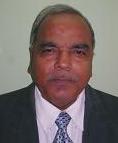This is a full-scale critical analysis of the haiku world of Ban'ya Natsuishi - its philosophy, symbolic language, chief tenets based on his haiku collections, and written by eminent authors in the field. The book, well organized and beautifully written, is a pioneer effort, unrivaled and indispensable to understand Ban'ya as a poet. The Poetic Achievement of Ban'ya Natsuishi consists of sixteen critical essays on Ban'ya Natsuishi. The book is a comprehensive study of Ban'ya's poetry. The maturity of the essays included in The Poetic Achievement of Ban'ya Natusishi is striking. They are well written with an independent, inquiring spirit free from narrow critical doctrines. The concise discussions of the principal works of Ban'ya, written by subject experts and foremost critics in the haiku field from around the world, provide insightful critical analysis, valuable for students and professors alike. No doubt, the book will enable us to delve more deeply than ever into Ban'ya's work.
Karunesh Kumar Agarwal was very much interested in publishing a critical book on Ban'ya, one of the greatest Japanese haiku poets, whose extraordinary genius elevated the haiku to an art form of unusual beauty. He worked to contact several renowned haiku poets and critics for critical essays revealing Ban'ya's classic journey of poetic self-discovery. This arduous task was very aptly done by him, and it is a special joy for Karunesh and myself to bring this book to life.
Previously called hokku, haiku was given its current name by the Japanese writer Masaoka Shiki at the end of the 19th century. "A haiku is the expression of a temporary enlightenment, in which we see into the life of things" ( Reginald Horace Blyth). Traditional haiku poets like Basho, Buson and Issa used haiku to express their feelings of Zen. The increasing popularity of haiku is evident by its influence on Ezra Pound. The impact of haiku on Pound is clearly visible in his poem "In a Station of the Metro":
The apparition of these faces in the crowd;
Petals on a wet, black bough.
Different critical articles included in The Poetic Achievement of Ban'ya Natsuishi emphasize that Ban'ya is the most widely admired haiku poet. Ban'ya in his haiku is concentrating on 'distillation of a moment". There seems to be an obvious increase of critical interest in Ban'ya's haiku poetry in light of the controversy which surrounds Flying Pope, a landmark in Haiku literature. Who is Flying Pope? On this point a whole book needs to be written. The fact is that Flying Pope is a poetic mask to comprehend reality beneath its surface. The critical essays included in The Poetic Achievement of Ban'ya Natsuishi explore Ban'ya's most elusive flavor in the genre of three unrhymed lines and "free-form" haiku. The greatness of Ban'ya as a haiku poet is due to the simple truth that he made the genre immediately accessible to wider audiences. I am deeply thankful and very grateful to Adam D. Powell, azSacra zaRathustra, Floriana Hall, Joseph S. Spence, Sr., Lynn Strongin, Magdalena Dale, Max Verhart, Patricia Prime, Paul Pfleuger, Jr., Petar Tchouhov, Rhoda Galgiani, Sayumi Kamakura, Suzie Palmer, Vasile Moldovan and Valentin Nicoliþov.
The Poetic Achievement of Ban'ya Natsuishi is the first full-length critical analysis of Ban'ya's contribution as a haiku poet. The book presents contemporary responses to Ban'ya's work, and I hope this will be immensely beneficial to students, researchers and haiku composers. The critics included in The Poetic Achievement of Ban'ya Natsuishi have paid commendable attention to the structure, thematic development in his haiku and innovative imagery. As a result, I trust we will now have a greater understanding of philosophical and psychological depths, complexity and originality of Ban'ya's poetry.
Santosh Kumar

Dr. Santosh Kumar (b. 1946) is a poet, short-story writer and an editor from India; DPhil in English; Chief Editor of an international literary journal Taj Mahal Review; several awards; member of World Poets Society (W.P.S.); member of World Haiku Association, Japan; published poetry in Indian Verse by Young Poets (1980), World Poetry (1995 & 1996), The Fabric of A Vision (2001), The Still Horizon (2002), The Golden Wings (2002), Voyages (2003), Symphonies (2003), New Pegasus (2004), Explorers (2004), Dwan (USA), Promise (Purple Rose Publications,USA), TMR 2002, 2003, 2004, 2005, 2006 & 2007). He has also edited sixteen World Poetry Anthologies, and four books of World's Great Short Stories. He is also the author of a collection of poems entitled Helicon (Cyberwit, 2006, India, ISBN 81-901366-8-2). He is able to achieve masterly poetic effects full of a singular beauty and rhythmical artistry in his new collection New Utopia. Wikipedia
Read More